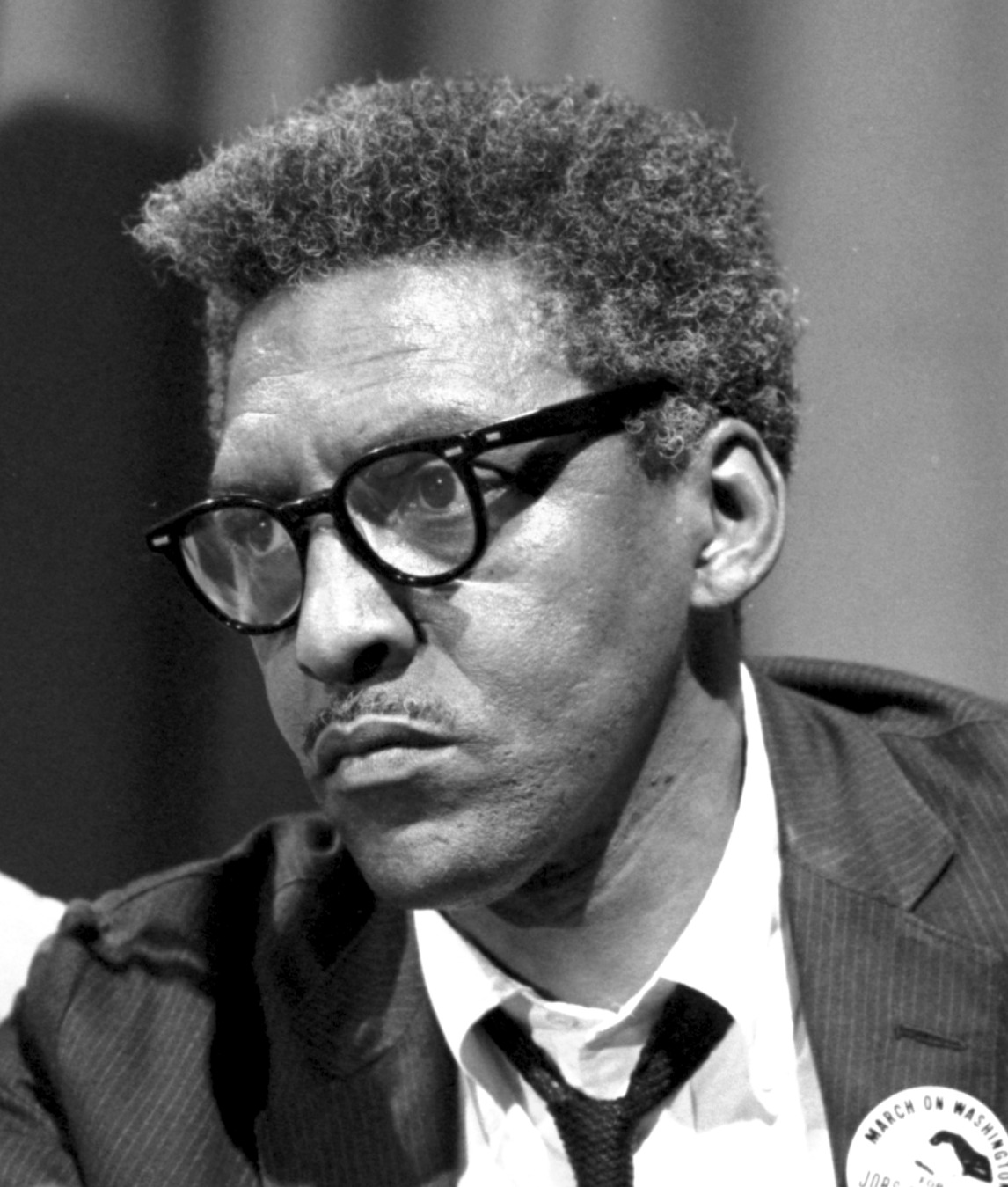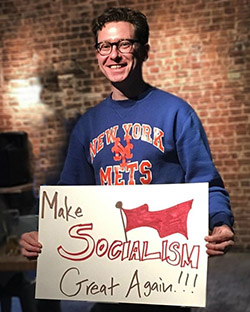
Adolph Reed Jr.
On August 14, NY Times sports reporter Michael Powell weighed in on the virtual meeting for Adolph Reed Jr. that fell through in May after DSA’s Afrosocialists and Socialists of Color Caucus demanded a debate instead. On June 12, Reed and co-thinker Walter Benn Michaels did an interview with Bellows magazine in which Reed stated that he did not need the stress of listening to hostile comments in a virtual meeting, so he decided to withdraw.
The left has been trying to figure out why the Times decided to report on this controversy, with many concluding that it was an attempt by the paper to weaken our movement. Since the NY Times has been one of the biggest supporters of the DSA, this seems unlikely to me. My guess is that they were simply trying to sell newspapers since this “cancel culture” business has been hot ever since the Harper’s Open Letter. They have mined this culture wars vein in the past with ample coverage of Alan Sokal’s spoof, for example.
One can understand why Bellows would have provided a friendly platform for Reed and Michaels. Self-described as an online Marxist magazine, it has the same contrarian bullheadedness as Reed and Michaels. Just check an article on the home page titled “The New Cultural Revolution” that describes the George Floyd protests as a conspiracy orchestrated by “transnational capital and its petit bourgeois enforcers”. Although I haven’t had time to check all the content on Bellows, it strikes me as a leftwing version of Quillette. Reed might have thought twice about being interviewed by a Quillette contributor like Matt Taibbi did but perhaps Bellows has less of a reek about it.
The clash between Reed and DSA’s Black caucus was to be expected. This has been a simmering dispute since 2017 when Reed went for their jugular on Adam Proctor’s Dead Pundits Society podcast to talk about “Race, Class and the DSA”. The bulk of it was an attack on the resolution the caucus submitted to the 2017 DSA convention that endorsed BLM and reparations, both of which Reed considers a roadblock to building class unity.
Basically, Proctor, an ideologue in the Dustin Guastella mode, and Reed saw eye-to-eye on what a threat the resolution was to the DSA’s social democratic agenda. There was no pretension about the term democratic socialism in their conversation. Both men expressed deep nostalgia for Bayard Rustin and agreed that the left took a wrong turn in 1965 when it abandoned social democracy for black power. As is generally the case with these ritual bows to Rustin, there is no attention paid to his refusal to support the seating of the Mississippi Freedom Democratic Party at the 1964 DP convention or Rustin keeping mum on the Vietnam War in order to placate wealthy liberal donors and trade union bureaucrats.
Reed dismissed BLM as inconsequential and having no organic ties to the Black community. If they weren’t happy with the class-unity, social democratic strategy of the DSA, they should just get out, to use Jordan Peele’s terminology. The best thing for this “little authoritarian enclave” is to have their caucus dissolved and its members disseminated into class-based efforts by the DSA such as ringing doorbells for democratic socialist candidates.
Adam Proctor makes no efforts to be respectful to BLM activists or Black caucus members. He favors a scorched earth approach even more brutal than Reed’s, describing the caucus as immersed in “melatonin” politics. He is cozy with people like Amber A’Lee Frost and Angela Nagle who joined him in a discussion of “How the left got lost in puritanism and in-group policing and the right took advantage.” In other words, the same agenda as Thomas Chatterton Williams and Matt Taibbi. If that wasn’t bad enough, he allowed Rania Khalek and Ben Norton to hold forth on “How Kinky are Salafists In Syria?”. They must had a thousand laughs about bombing hospitals and killing tens of thousands of men in Sednaya Prison.
One of the interesting points made by Michael Powell was about Reed’s co-thinkers who “see the current emphasis in the culture on race-based politics as a dead-end.” One of them is Bhaskar Sunkara. Since that is explicitly a barb aimed at BLM, Sunkara must have a short memory in light of what he wrote in “The Socialist Manifesto”:
Now history seemed to be repeating itself in Ferguson: Wilson absurdly maintained he felt like a “five-year-old” next to Brown’s “Hulk Hogan” and said he fired to protect his life. Less than a day later, Ferguson was gripped by massive protests that turned into violent confrontations at night as police tried to disperse the demonstrations. The actions lasted for weeks and inspired solidarity protests in cities around the country.
This was the inaugural moment of the nation-wide Movement for Black Lives (MBL), which called for an end to racist law enforcement. MBL challenged accepted realities about state violence and harassment faced by black Americans. After Ferguson, as unarmed people continued to die at the hands of US police—with some of it caught on cell phone cameras similar protests rocked cities like Baltimore, Baton Rouge, Chicago, and New York. The demands advanced by the protesters in Ferguson and their counterparts around the country—including an end to police impunity and the creation of poverty-alleviation programs in black neighborhoods—were broadly social-democratic and garnered widespread sympathy.
So BLM raised demands that “were broadly social-democratic and garnered widespread sympathy.” How deep was Sunkara’s analysis if he could change politics like underwear? Was it a good marketing choice to extol MBL (same as BLM) in his book and now a better one to write it off? Since the guy’s main goal in life is to build a publishing empire, I can’t say I blame him.
While Michael Powell does not end up squarely in the Harper’s open letter camp, it is clear that his goal is to portray Reed as a victim of cancel culture:
Amid murmurs that opponents might crash his Zoom talk, Professor Reed and D.S.A. leaders agreed to cancel it, a striking moment as perhaps the nation’s most powerful Socialist organization rejected a Black Marxist professor’s talk because of his views on race.
The truth, of course, is that they called for a debate that clearly the organizers would not have agreed to. As I said above, Reed dropped out because he didn’t want to deal with hostile comments in a virtual meeting.
Yesterday, Roger Berkowitz, a Bard professor who signed the Harper’s letter, understood Powell’s intentions even if most of the left could not. He wrote:
If you want an example of the inability to see the absurdity of a situation and a complete aversion to reality, the story of how the Democratic Socialists of America have canceled a speech by Adolph Reed is at the top of the list. Reed grew up in the segregated South and organized poor Black people and war resisters. He has been a leading socialist fighter for the rights and dignity of the poor. And he is an esteemed professor. But Reed’s belief that the root of oppression today is based in poverty rather than race runs afoul of contemporary pieties. As Michael Powell explains, this has led to the truly unreal situation where he has been prevented from speaking to the Democratic Socialists.
His article concluded: “Amid murmurs that opponents might crash his Zoom talk, Professor Reed and D.S.A. leaders agreed to cancel it, a striking moment as perhaps the nation’s most powerful Socialist organization rejected a Black Marxist professor’s talk because of his views on race.”
What’s apparent to me is an inability of the DSA to have clarity around these issues, which is the function of its unresolved position on race/class. I can see at least three distinct outlooks. The Black caucus sees things pretty much in the way that revolutionary socialists have viewed them going back to the time of Lenin. Reed spent a fair amount of time scoffing at the idea of self-determination for Black America that was popular in the 1960s. Where are the borders of their country, he laughed. In 1920, Lenin wrote a resolution for the Comintern that stated “All communist parties must directly support the revolutionary movement among the nations that are dependent and do not have equal rights (for example Ireland, the Negroes in America, and so forth), and in the colonies.” As for trying to make sense of how this applies to the USA today and BLM, I would only say that having a mass movement that focuses on specific Black demands is much more in line with the Comintern than Reed’s Bayard Rustin platitudes.
Probably, the big majority of the DSA goes along with the sort of analysis found on the Bread and Roses website and in magazines like In These Times and Jacobin (excluding the Reed and Cedric Johnson junk). They support any movement against racism but, like Reed and Sunkara, feel that the most effective strategy is finding demands that are in the interest of Black and white workers alike.
Finally, you have the Philly DSA and the LES DSA branch that sponsored Reed’s talk. They are totally into the whole Bayard Rustin nostalgia trip. Let them take that ride while the rest of us move forward to socialist revolution.


